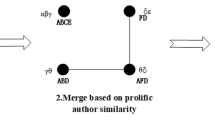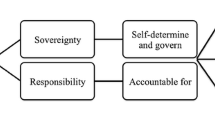Abstract
There is a shift going on in Dutch higher education from traditional, teacher centred education to student learning activities. The trend is to structure these activities in real-life tasks, projects or case situations in which Information and Communication Technology (ICT) is integrated.
This paper discusses results of a two-year project implementing this type of education. The focus of the project was on task-based team learning with Information and Communication Technology. In this project two Dutch universities worked together. One partner was the Hogeschool van Utrecht, a university for applied science and professional development. The other was the University of Utrecht, a general university. A large department and an educational expert centre were involved in each university. Learning environments were developed in two settings: Economics and Management (Hogeschool van Utrecht) and Medicine (University of Utrecht).
An example of a task-based team learning environment is described. It is a course on E-business of 280 hours of study for part-time students in Economics and Management. The didactical model of task-based team learning underlying this course is presented. The results confirm that the model is relevant and useful.
In an analytic part of the project good practice for design, development and implementation was identified from literature and assembled in two sets of guidelines, one design of task-based team learning with ICT and one for development and implementation. Substantial implementations of new learning imply changes in the organisation of education, the roles of students and teaching staff, and the infrastructure. Because of this, the design and development process become complex activities and have to be split into sub-processes for effectiveness. A process model for design, development and implementation was therefore introduced in the project and is presented here.
The developed guidelines were reviewed with respect to (critical) success factors contributing to success or failure of the courses developed. There are always risks in course design and development, and specifically so in task-based team learning, because students have an explicit responsibility for their own activities. What are then the essential factors decisive for success or failure of design, development and the running of such courses? Design and development guidelines were reviewed to identify success factors and the actors involved. Some of these success factors were deemed to be critical, others non-critical. In the last stage of the project these success factors were validated with experienced designers and developers. Some examples are presented.
Similar content being viewed by others
References
Brown, A. L. and Palincsar, A. S. (1989) Guided, cooperative learning and individual knowledge acquisition. In Knowing, Learning and Instruction, Essays in Honor of Robert Glaser, L. B. Resnick (ed). Lawrence Erlbaum, Hillsdale, NJ, pp. 393–451.
Cohen (1994) Restructuring the classroom: Conditions for productive small groups. Review of Educational Research, 64(1), 1–35.
Dillenbourg, P. (1999) Introduction: What do you mean by “Collaborative learning”? In Collaborative Learning; Cognitive and Computational Approaches, P. Dillenbourg (ed). Elsevier Science Ltd., Kidlington, Oxford, pp. 1–19.
Dix, A. J., Finlay, J. E., Abowd, G. D., and Beale, R. (1998) Human Computer Interaction (second edition). Prentice Hall Europe, London.
Dochy, F., Segers, M., and Sluijsman, D. (1999) The use of self-, peer and co-assessment in higher education: A review. Studies in Higher Education, 331–349.
Duffy, T. M., Lowyck, J., and Welsh, T. M. (1993) Designing Environments for Constructive Learning. Springer, Berlin.
Duffy, T. M. and Orrill, C. (2001) Constructivism. In Educational Technology, An Encyclopedia, A. Kovalchic and K. Dawson (eds). ABC-CLIO, Santa Barbara, CA.
Fredericksen, E., Picket, A., Shea, P., Pelz, W., and Swan, K. (2000) Student satisfaction and perceived learning with on-line courses: Principles and examples from the SUNY learning network. Journal of Asynchronous Learning Networks, 4(2).
Fullan, M. G. (1991) The New Meaning of Educational Change. Cassell Educational Ltd., London.
Hezemans, M. and Ritzen, M. (2002) Learning environments and responsibility. In TelE-Learning, The Challenge for the Third Millennium, D. Passey and M. Kendall (eds). Kluwer Academic Publishers, Boston, pp. 185–192.
Jansen, D. (ed) (2002) Virtual Companies: From Learning Environment to Working Environment. Dutch Digital University, www.digiuni.nl.
Jochems, W. and Gerrissen, J. (2000) Competentiegericht leren. Op het grensvlak van 'leren van' en 'sturen op'. Tijdschrift voor Hoger onderwijs en Management, 7(3), 39–42.
Johnson, D. W. and Johnson, R. T. (1994a) Learning together. In Handbook of Co-operative Learning Methods, S. Sharan (ed). Greenwood Press, Westport, pp. 51–65.
Johnson, D. W. and Johnson, R. T. (1994b) Leading the Co-operative School. Interaction Book Company, Edina, MN.
Jonassen, D. H. (1997) Instructional design models for well-structured and ill-structured problem-solving learning outcomes. Educational Technology: Research and Development, 42(2), 31–39.
Jonassen, D. H., Peck, K. L., and Wilson, B. G. (1999) Learning with Technology. A Constructivist Perspective. Prentice Hall, Upper Saddle River, NJ.
Kagan, S. (1994) Co-operative Learning. Moore Data Management Services, San Diego, CA.
Kjersdam, F. and Enemark, S. (1994) The Aalborg Experiment: Project Innovation in University Education. Aalborg University Press, Aalborg.
Kotter, J. P. (1995) Why transformation efforts fail. Harvard Business Review, March–April. Lave, J. and Wenger, E. (1991) Situated Learning. Legitimate Peripheral Participation. University of Cambridge Press, Cambridge.
Lawler III, E. E. (1994) From job-based to competency-based organizations. Journal of Organizational Behaviour, 15, 3–15.
Lockhorst, D., Admiraal, W., Pilot, A., and Veen, W. (2002) Design elements for a CSCL environment in a teacher training programme. Education and Information Technologies, 7(4), 377–384.
McLellan, H. (1995) Situated Learning Perspectives. Educational Technology Publications, Englewood Cliffs, NJ.
Reigeluth, C. M. (ed) (1983) Instructional Design Theories and Models: An Overview of Their Current Status. Lawrence Erlbaum, Hillsdale, NJ.
Reigeluth, C. M. (ed) (1987) Instructional Theories in Action: Lessons Illustrating Selected Theories and Models. Lawrence Erlbaum, Hillsdale, NJ.
Ritzen, M. (2001) Ontwikkelhandboek Taakgericht Teamleren met ICT. Hogeschool van Utrecht/Universiteit Utrecht, Cetis/IVLOS, Utrecht; http://www.cetis.hvu.nl (in Dutch).
Romiszowski, A. J. (1987) Designing Instructional Systems. Decision Making in Course Planning and Curriculum Design. Kogan Page, London.
Sikkel, K., Gommer, E. M., and van der Veen, J. T. (2001) Using shared workspaces in higher education. Innovations in Education and Teaching International (IETI).
Simons, R. J., van der Linden, J., and Duffy, T. (2000) New learning: Three ways to learn in a new balance. In New Learning, R. J. Simons, J. van der Linden, and T. Duffy (eds). Kluwer, Dordrecht.
Strom, R. and Strom, P. (1996) Student evaluation of social skills. Journal of Instructional Psychology, 23(2), 111–117.
Van der Veen, J. T. (2001) Telematic support for group-based learning, Ph.D. Thesis, Twente University Press, Enschede; on-line version: http://www.ub.utwentenl/webdocs/to/1/t000000f.pdf
Van Eijl, P., Pilot, A., Hezemans, M., Ritzen, M., van Weert, T., and Quaak, M. (2001) ICT bij samenwerkend leren: Kritische succesfactoren in het cursusontwerp, IVLOS-report, University of Utrecht (in Dutch).
Van Merriënboer, J. J. G. (1996) Training Complex Cognitive Skills, a Four-Component Instructional Design Model for Technical Training. Educational Technology Publications, Englewood Cliffs, NJ.
Van Vliet, R. G., Morgan, C. M., and Pilot, A. (2001) Virtual project rooms for education in design and research, possibilities for outlook/exchange as a platform for collaborative learning. In Proceedings BITE Conference, Technical University of Eindhoven, Eindhoven, November 2001.
Van Weert, T. J. (ed) (2000) Information and Communication Technology in Higher Education, International Federation for Information Processing (IFIP), Laxenburg; http://www.ifip.or.at
Van Weert, T. J. (2001a) Co-operative ICT-supported learning: A practical approach to design. In Informatikunterricht und Medienbildung INFOS 2001, R. Keil-Slawik and J. Magenheim (eds). GI-Edition, Lecture Notes in Informatics (LNI), Proceedings Series of the German Informatics Society (GI). Springer, pp. 47–61.
Van Weert, T. J. (2001b) Ontwerphandboek Taakgericht Teamleren met ICT, Cetis/IVLOS, Utrecht; http://www. cetis.hvu.nl (in Dutch).
Van Weert, T. J. (2002a) Position paper on lifelong learning, International Federation for Information Processing, Laxenburg, Austria, http://www.ifip.or.at or http://web.plu.ntnu.no/ansatte/janwib/ifip/lll-conference/
Van Weert, T. J. (2002b) Lifelong learning in virtual learning organisations, designing virtual learning environments. In TelE-Learning, The Challenge for the Third Millennium, D. Passey and M. Kendall (eds). Kluwer Academic, Boston, pp. 135–142.
Veerman, A. (2000) Computer-Supported Collaborative Learning Through Argumentation. Utrecht University, Utrecht.
Vygotsky, L. S. (1978) Mind in Society: The Development of Higher Psychological Processes. Harvard University Press, Cambridge, MA.
Wenger, E. (1998) Communities of Practice. Cambridge University Press, Cambridge.
Westera, W., Sloep, P. B., and Gerrissen, J. F. (2000) The design of the virtual company: Synergism of learning and working in a networked environment. Innovations in Education and Training International, 37, 23–33.
Woolfolk, A. E. (2001) Educational Psychology. Allyn and Bacon, Boston, USA. Wetenschappelijke Raad voor het Regeringsbeleid (2002) Rapporten aan de regering, Van oude en nieuwe kennis: de gevolgen van ICT voor het kennisbeleid, Sdu Uitgevers, Den Haag. (Scientific Board for Government Policies (2002) Reports to the government, About old and new knowledge: Implications of ICT for the policy on knowledge, Sdu Uitgevers, Den Haag, The Netherlands.)
Author information
Authors and Affiliations
Rights and permissions
About this article
Cite this article
van Weert, T.J., Pilot, A. Task-Based Team Learning with ICT, Design and Development of New Learning. Education and Information Technologies 8, 195–214 (2003). https://doi.org/10.1023/A:1024562515675
Issue Date:
DOI: https://doi.org/10.1023/A:1024562515675




